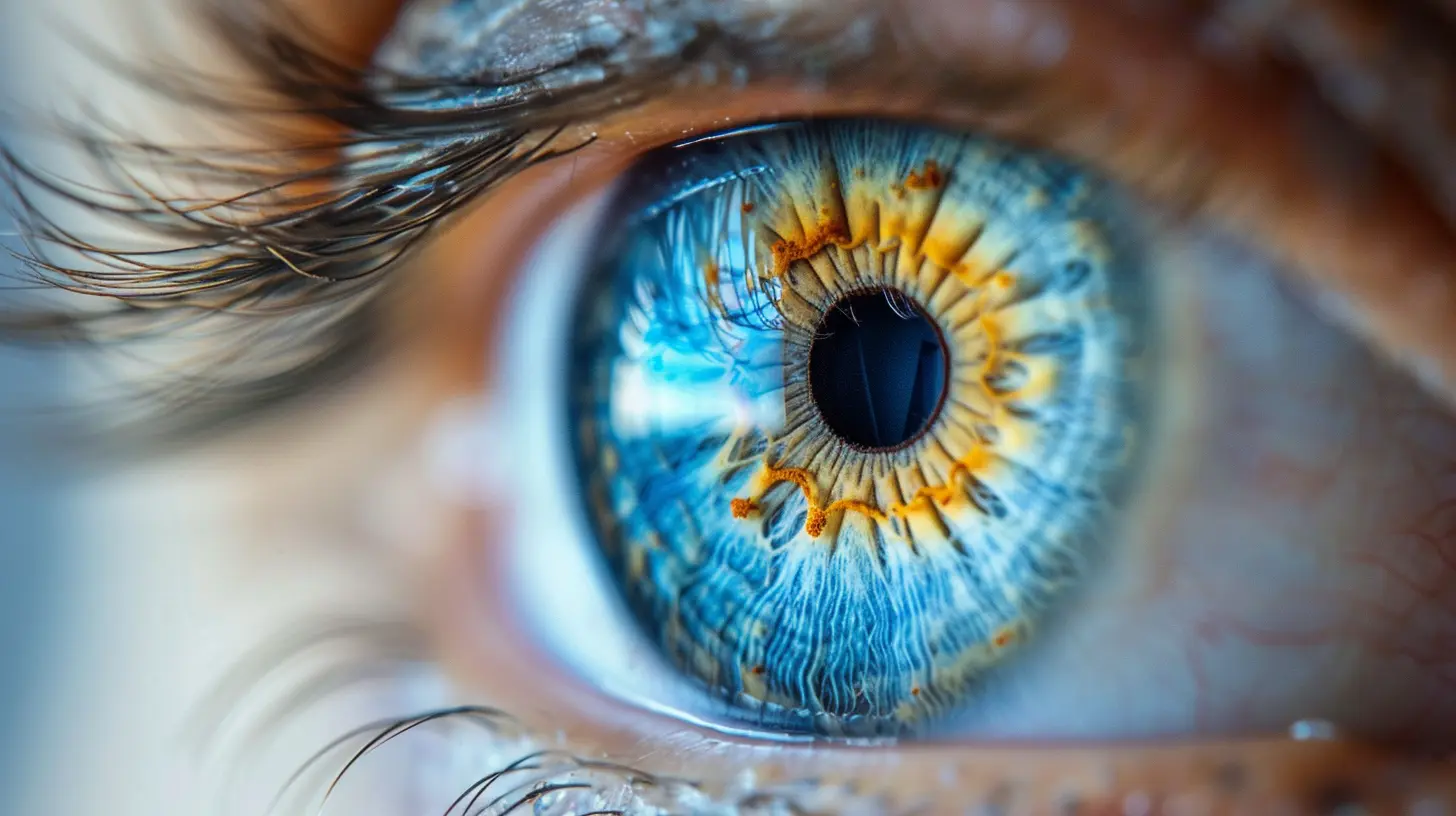Why Biometric Security Is Becoming a Standard in Modern Devices
16 April 2025
Technology is evolving at an unprecedented pace, and with it, security measures must keep up. Gone are the days when simple passwords were the go-to solution for protecting our devices. Today, biometric security has moved to the forefront, becoming the new standard for modern smartphones, laptops, and even smart home devices. But why is biometric security taking over traditional authentication methods?
Let’s dive into the reasons behind this massive shift and why you should embrace it.

What Is Biometric Security?
Before we get into the "why," let’s clarify the "what."Biometric security refers to the use of unique physical or behavioral characteristics to verify a person’s identity. Instead of relying on something you know (like a password) or something you have (like a security token), biometrics authenticate you based on who you are.
Common biometric authentication methods include:
- Fingerprint Recognition: The most widely used method, found on smartphones and laptops.
- Facial Recognition: Popularized by Apple’s Face ID and Android’s facial unlock.
- Iris Scanning: Used in high-security environments and some advanced smartphones.
- Voice Recognition: Common in voice assistants like Siri, Alexa, and Google Assistant.
- Behavioral Biometrics: Tracks unique patterns like typing speed or touchscreen gestures.
Now that we understand what it is, let’s explore why biometric security is taking over.

1. Convenience: Say Goodbye to Password Fatigue
Let’s be honest—passwords are a hassle.How many times have you forgotten a password, had to reset it, or struggled to remember which one you used for a particular account? Biometric security eliminates this pain by allowing you to unlock your device with a quick fingerprint scan or a glance at your phone.
Unlike passwords, which require memorization and frequent updates, biometrics are effortless. No complex combinations. No frustration. Just a simple tap or look.

2. Enhanced Security: Harder to Hack Than Passwords
Passwords are notorious for being weak. Many users still rely on predictable choices like "123456" or "password." Even if you use a strong password, it can be stolen through phishing attacks, brute-force attempts, or data breaches.Biometrics, on the other hand, are significantly harder to forge. Consider this:
- Fingerprints are unique to each individual.
- Facial recognition systems scan for depth and texture to prevent spoofing.
- Iris patterns are almost impossible to replicate.
Unlike passwords, which can be guessed or stolen, biometric data is part of you. This makes unauthorized access much more difficult.

3. Speed: Faster Authentication in a Tap or Glance
Time is precious, and entering passwords multiple times a day can slow you down. Biometric security is designed for instant authentication.Think about how quickly Face ID unlocks an iPhone or how seamless fingerprint scanners grant access to banking apps. It's faster than typing in a password, even if it's stored in a password manager.
For businesses, biometric authentication also speeds up employee login times, improving productivity and efficiency. Faster access means smoother workflows.
4. The Decline of Traditional Authentication Methods
Let’s face it—traditional authentication methods are dying.- Passwords are outdated. They can be hacked, forgotten, or stolen.
- PINs are predictable. Many people use basic patterns that are easy to guess.
- Security questions are weak. Answers like "mother’s maiden name" or "first pet’s name" can often be found on social media.
Tech companies recognize these flaws and are rapidly shifting towards biometric authentication because it offers superior protection.
5. Widespread Adoption by Tech Giants
Major tech brands are embracing biometric security, pushing it further into the mainstream.- Apple: Leading the charge with Face ID and Touch ID built into iPhones, iPads, and MacBooks.
- Samsung: Implementing ultrasonic fingerprint scanners and facial recognition in their Galaxy devices.
- Google: Integrating biometric login options for Android and Chrome.
- Microsoft: Supporting fingerprint and facial authentication through Windows Hello.
When industry giants set the trend, it becomes clear that biometric security is not just a passing fad—it’s here to stay.
6. Increased Security in Banking and Payments
Your phone isn’t the only place biometric security is making a difference—financial institutions are using it to protect your money.- Mobile banking apps now support fingerprint or facial authentication instead of passwords.
- Digital wallets like Apple Pay, Google Pay, and Samsung Pay use biometrics to authorize transactions.
- Some credit cards are even incorporating fingerprint scanners for added security.
This shift reduces the risk of fraud and makes financial transactions more secure and seamless.
7. The Rise of Smart Homes and IoT Devices
With smart devices flooding our homes, security has never been more critical. Thankfully, biometric authentication is enhancing protection in the Internet of Things (IoT) ecosystem.- Smart locks now use fingerprint or facial recognition instead of traditional keys.
- Home assistants can recognize unique voices for personalized responses.
- Access to personal data on smart devices can be restricted by biometrics.
In an era where hacking threats are real, biometric authentication adds an extra layer of defense to connected homes.
8. Advancements in AI and Machine Learning
Biometric security is becoming more sophisticated thanks to AI and machine learning.- AI-powered facial recognition adapts to aging and appearance changes.
- Fingerprint scanners use machine learning to detect fake fingerprints.
- Behavioral biometrics analyze typing and movement patterns for authentication.
These advancements drastically reduce false positives and enhance accuracy, making biometric security even more reliable.
9. Privacy Concerns and Ethical Considerations
Despite its advantages, biometric security isn't without controversy. Many people worry about privacy, data storage, and misuse.Common concerns include:
- Data breaches: If biometric data is leaked, it can't be changed like a password.
- Government surveillance: Some fear widespread tracking and loss of anonymity.
- False positives/negatives: No system is perfect, raising concerns about access denial.
To address these issues, companies are implementing on-device processing (like Apple’s Secure Enclave) to keep biometric data private and encrypted.
10. The Future of Biometric Security
So, where do we go from here?Biometric security will only become more advanced and widely adopted. Expect to see:
- Multi-modal biometrics: Combining fingerprints, facial recognition, and behavioral traits for even stronger security.
- Biometric authentication in cars: Unlocking and starting vehicles with your fingerprint or face.
- Wider integration with smart cities: Seamless biometric access for public transportation, offices, and payments.
As technology evolves, biometric security will continue to shape the future, making passwords and PINs relics of the past.
Final Thoughts
Biometric security is becoming the gold standard in modern devices for good reason. It’s faster, more secure, and more convenient than traditional authentication methods. While privacy concerns remain, advancements in encryption and AI are mitigating these risks.With tech giants leading the charge and everyday devices integrating biometrics, one thing is clear: This technology is not just a trend—it’s the future of digital security.
all images in this post were generated using AI tools
Category:
Tech NewsAuthor:

Gabriel Sullivan
Discussion
rate this article
8 comments
Rocket Nguyen
Fascinating trend! What’s next in security?
April 29, 2025 at 10:45 AM

Gabriel Sullivan
Thank you! Next, we can expect advancements in AI-driven biometric systems and increased integration of multi-factor authentication for enhanced security.
Will McGehee
Great insights! Biometric security's rise reflects our need for enhanced protection and convenience. It’s reassuring to see technology evolving to meet security demands in daily life.
April 21, 2025 at 6:15 PM

Gabriel Sullivan
Thank you for your comment! I agree—biometric security truly offers a blend of enhanced protection and convenience that's becoming essential in our daily lives.
Alanna McGarvey
Embracing biometric security not only enhances safety but also empowers users with seamless access to their digital lives. Progress awaits!
April 21, 2025 at 4:06 AM

Gabriel Sullivan
Thank you! Absolutely, biometric security strikes a perfect balance between enhanced safety and user convenience, paving the way for a more secure digital future.
Brittany McGonagle
Great insights on the rise of biometric security! It's fascinating to see how these technologies enhance user convenience while prioritizing safety. Looking forward to future developments in this space!
April 20, 2025 at 6:27 PM

Gabriel Sullivan
Thank you for your positive feedback! I share your excitement about the future of biometric security and its potential to balance convenience and safety.
Zeke Hunter
Biometric security enhances device protection and user convenience, but it also raises privacy concerns that warrant careful consideration.
April 19, 2025 at 8:57 PM

Gabriel Sullivan
Thank you for your comment! You're absolutely right—while biometric security offers significant benefits in convenience and protection, it's crucial to address the associated privacy concerns to ensure user trust and safety.
Vireo McMichael
Biometric security isn’t just a trend; it’s the future. As threats evolve, relying on passwords is outdated. Embrace the shift—your data deserves cutting-edge protection. Let’s leave antiquated security methods behind.
April 19, 2025 at 12:09 PM

Gabriel Sullivan
I completely agree! Biometric security offers enhanced protection against evolving threats and is indeed the future of digital security. Embracing this technology is essential for safeguarding our data.
Nyx King
Great article! It’s fascinating to see how biometric security is becoming a fundamental part of our devices. As technology evolves, prioritizing user safety and convenience is essential. Looking forward to seeing how this trend unfolds in the future!
April 19, 2025 at 2:42 AM

Gabriel Sullivan
Thank you! I appreciate your thoughts on the importance of biometric security and its impact on user safety and convenience. Exciting times ahead!
Drake Russell
As we embrace biometric security, one must wonder: are we safeguarding our identities or relinquishing them? The line between protection and invasion blurs as technology evolves. What secrets lie beneath these digital locks?
April 18, 2025 at 2:27 AM

Gabriel Sullivan
Biometric security enhances protection by providing more robust identity verification; however, it does raise valid concerns about privacy and data security. Balancing these aspects is crucial as technology advances.
MORE POSTS

How Biocomputers Could Become the Future of Computing

Data Sovereignty and Cloud Security: What You Need to Know

How IoT is Powering the Future of Telemedicine

Bluetooth Earbuds Battle: AirPods Pro vs. Jabra Elite

The Benefits of Using Open-Source Tools in Data Analytics
Fitness Trackers and Nutrition: Integrating Tech into Your Meal Plans